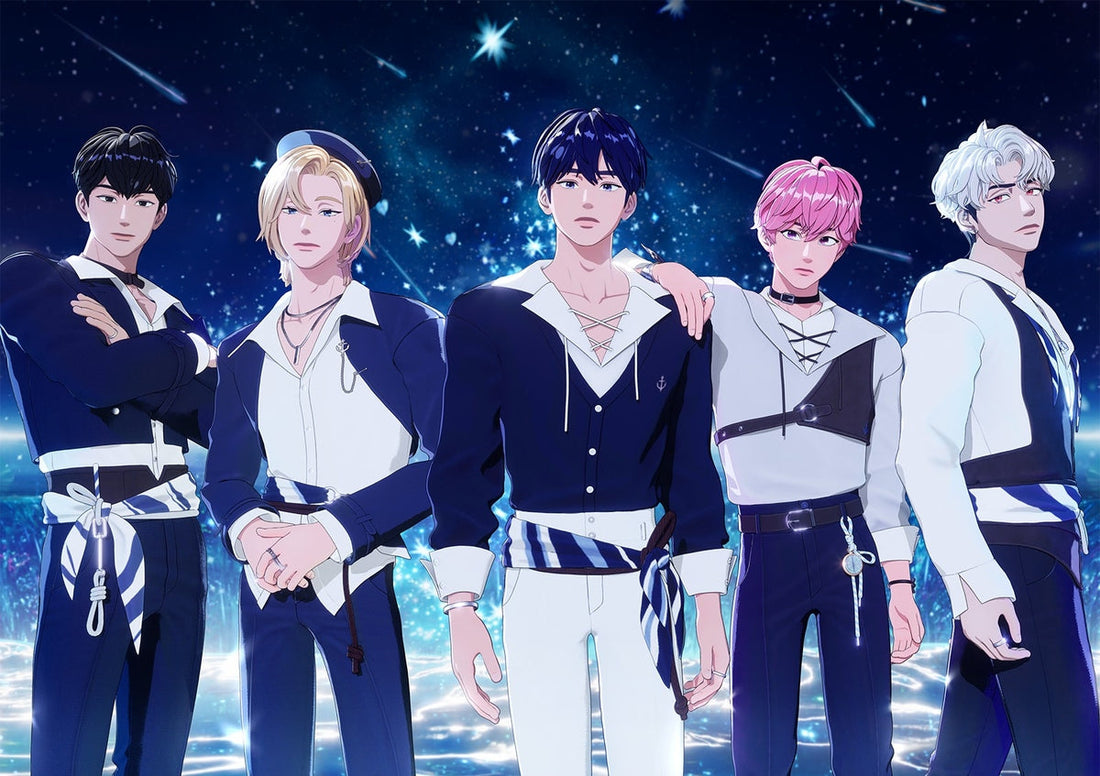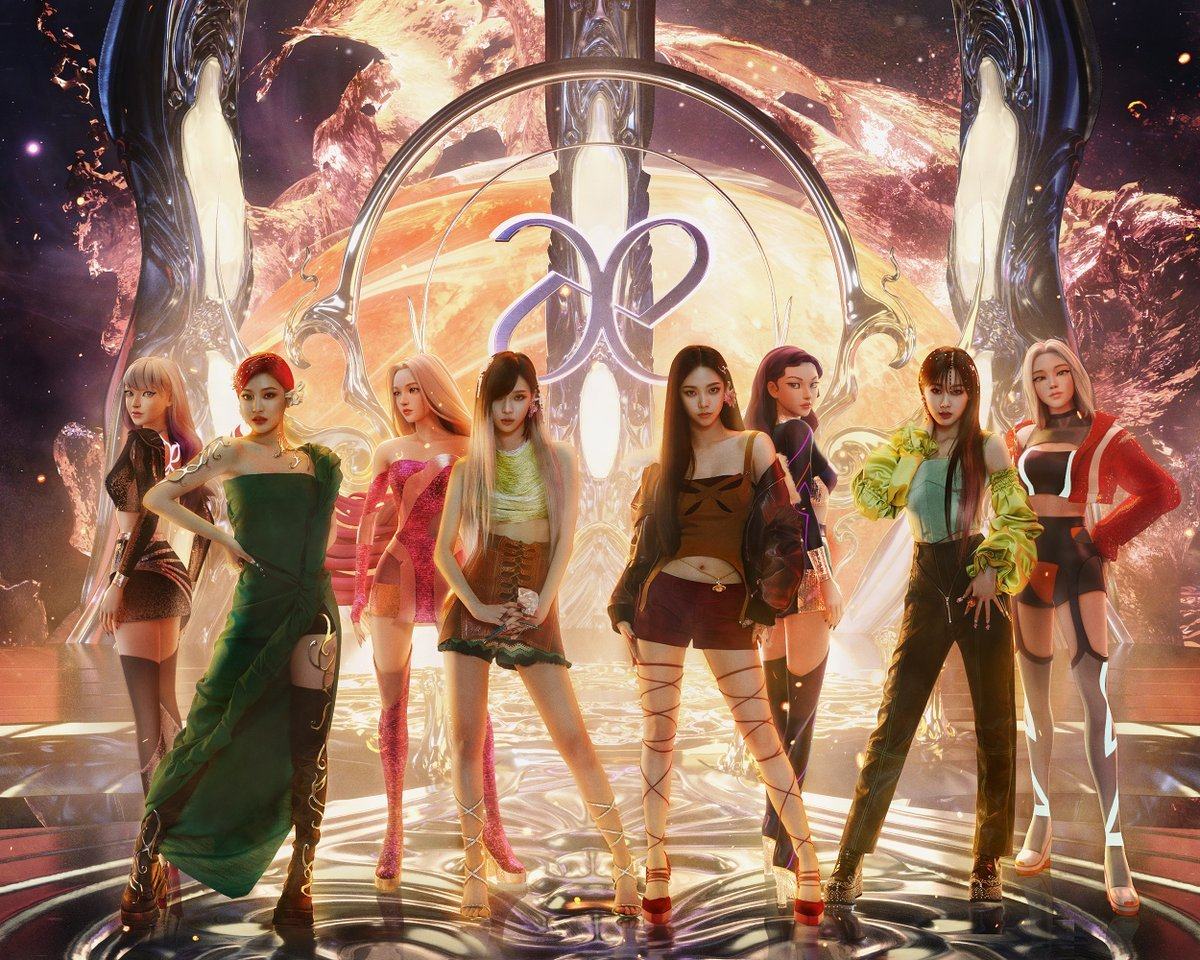
Virtual Idols & AI in K-Pop: The Future of the Industry?
Daebak InternsShare
Imagine this: you are scrolling through Instagram or Tik-Tok and you come across a K-pop group with amazing visuals, sharp dance moves and catchy vocals. Everything about them is perfect except none of the members don’t even exist. Welcome to the world of Virtual and AI Idols… where reality is blending with technology to create a new type of star. Korea has always been at the cutting edge of combining entertainment and innovation, from hologram concerts to fandom apps. But now, the industry has a new question: Are virtual idols just a passing trend, or the future of K-Pop itself?
Sphaze debuted on Sept. 30 with the album “Starlight." Courtesy of Oort Entertainment
What Exactly Are Virtual & AI Idols?
Virtual idols are computer-generated performers who sing, dance, and interact with fans, just like traditional K-Pop idols but they exist only in digital form, often created with high-level CGI and motion capture. AI idols go a step further: their voices, songs, and even personalities are powered by artificial intelligence. Think idols that can drop a track in multiple languages overnight or chat with you in real time without ever sleeping. This isn’t entirely new. Japan’s Vocaloid star Hatsune Miku led the wave years ago, but Korea has taken the idea into hyperdrive with groups like MAVE: and virtual soloist Apoki, plus Aespa’s æ-concept that blends human and virtual members.

Source: Hatsune Miku│© Crypton Future Media
Why They’re Trending in Korea?
So, why are entertainment companies investing in "idols" that don't even exist in reality? Some of the reasons can be:
- Scandal-proof perfection → Virtual stars won't get involved in scandals or get tired due to packed schedules like real human idols.
- 24/7 fan interaction → They are able to "perform" at anytime, anywhere even in the metaverse.
- Global reach → With AI translation, virtual idols are now capable of communicating directly to fans in different languages. Even real-time translation of songs is possible.
- Artistic liberty → Entire fantasy worlds and forthcoming performances become possible, storytelling elevated to a new level.
In short, virtual idols cover most of the industry's largest hurdles opening new doors for creativity.
Source: Virtual K-pop group PLAVE / Courtesy of VLAST
Fans Are Divided
The response so far? It is a mix of enthusiasm and doubt.
Enthusiasm: Some fans like the futuristic look, smooth performances, and the limitless creative potential AI offers. MAVE:'s debut song Pandora gained millions of views, suggesting that the interest is real.
Skepticism: Others, however, argue that K-Pop is all about "connection" , the connection fans get by watching idols grow up, suffer, and share their humanity. Perhaps a flawless, programmed idol will never have the emotional connection that fans cherish most. They will just be like robots made in a factory that don't even feel real.
The controversy goes on: will AI take the place of actual idols, or just augment them?
Source: A concept photo of virtual idol group PLAVE's new album “Caligo Pt.1” / Courtesy of VLAST
The Future of K-Pop with AI
Looking ahead, the possibilities are both thrilling and a little disconcerting:
-
Hybrid groups where human idols perform together with AI counterparts of themselves (e.g., Aespa).

-
Virtual concerts in VR and the metaverse, with fans joining from anywhere across the globe.

-
Customized idols, individually designed to meet each fan's personal preference in looks, voice, and personality.

Whether this solidifies K-Pop's global influence or risks losing its human touch remains to be seen. One of the things that K-pop has been criticized for since its beginning was that they are manufactured but now, it is literally manufactured.

Conclusion
Virtual idols are no longer science fiction they're here, debuting on real charts and stages. But the question is: will they be the next BTS-level phenomenon, or an interesting project in K-Pop history?
What do you think would you stan a virtual group?




